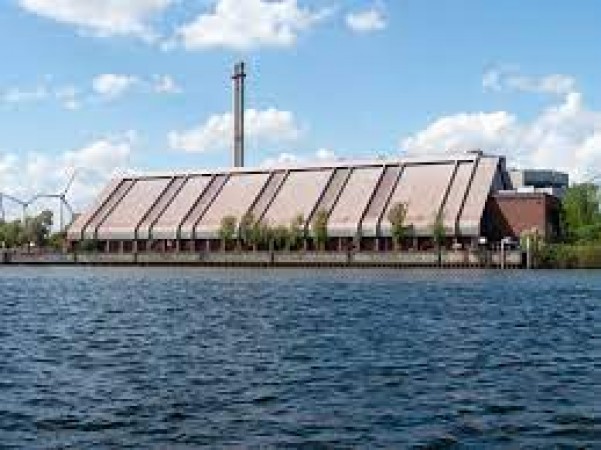
Water pollution is a pressing environmental issue that affects the health of ecosystems and human populations worldwide. It occurs when contaminants enter water bodies, such as rivers, lakes, and oceans, causing harm to the delicate balance of aquatic life and posing significant risks to human health. This article aims to explore the causes of water pollution and highlight preventive measures that can mitigate this environmental disaster.
Understanding Water Pollution: Water pollution refers to the contamination of water bodies, including lakes, rivers, oceans, and groundwater sources, with harmful substances. These contaminants can originate from various sources and have adverse effects on the quality of water, aquatic life, and human health. Understanding the different types of water pollution is crucial to addressing the issue effectively.
Causes of Water Pollution:
Industrial Discharges: Industries often release toxic chemicals, heavy metals, and other pollutants into water bodies, either deliberately or accidentally. These discharges include untreated wastewater, industrial effluents, and chemical spills. High concentrations of pollutants can have devastating effects on aquatic ecosystems.
Agricultural Runoff: The excessive use of fertilizers, pesticides, and herbicides in agriculture leads to runoff, where these chemicals enter nearby water bodies. This agricultural runoff contains harmful nutrients, such as nitrogen and phosphorus, which cause excessive algae growth and oxygen depletion, known as eutrophication. It harms aquatic plants, fish, and other organisms.
Sewage and Wastewater: Improperly treated sewage and wastewater from households, industries, and commercial establishments are often discharged into water bodies. These wastewater discharges introduce harmful pathogens, bacteria, and viruses, leading to waterborne diseases and ecological imbalances.
Oil Spills: Oil spills, whether due to accidents during transportation or offshore drilling, pose severe threats to water bodies. The oil coats the water surface, suffocating marine life and affecting birds and mammals. It also contaminates the surrounding ecosystems and has long-term ecological consequences.
Improper Waste Disposal: Improper disposal of solid waste, including plastics, chemicals, and non-biodegradable materials, results in their entry into water bodies. Plastic waste, in particular, poses significant risks as it takes centuries to decompose and can entangle and harm marine animals.
Mining Activities: Mining operations, particularly those involving the extraction of minerals and ores, generate a considerable amount of waste material, often containing toxic substances. If not adequately managed, these mining waste discharges can contaminate nearby water sources, leading to serious environmental degradation.
Impacts of Water Pollution: Water pollution has far-reaching impacts on both ecosystems and human populations. The following are some of the significant consequences:
Ecosystem Disturbance: Water pollution disrupts the delicate balance of aquatic ecosystems. It reduces biodiversity, harms fish populations, degrades coral reefs, and destroys habitats. The loss of aquatic species and the disruption of food chains can have cascading effects on the entire ecosystem.
Threat to Biodiversity: Water pollution poses a significant threat to biodiversity as it affects both aquatic and terrestrial organisms. The decline of aquatic species, such as fish, amphibians, and mollusks, directly impacts the food web and can lead to the extinction of species. Additionally, contaminated water can harm terrestrial organisms that rely on it for survival.
Human Health Risks: Contaminated water poses substantial risks to human health. Waterborne diseases, such as cholera, typhoid, and dysentery, are prevalent in areas with polluted water sources. Moreover, long-term exposure to certain pollutants, such as heavy metals, can lead to chronic health conditions, including organ damage, neurological disorders, and cancer.
Economic Consequences: Water pollution has significant economic implications. Contaminated water sources reduce the availability of clean water for drinking, irrigation, and industrial purposes. The costs associated with water treatment, healthcare for waterborne diseases, and the loss of fisheries and tourism industries can be substantial.
Prevention of Water Pollution: Preventing water pollution requires concerted efforts from individuals, industries, and governments. The following measures can help minimize and prevent water pollution:
Implementing Effective Regulations: Governments should establish and enforce stringent environmental regulations to control and monitor pollution sources effectively. These regulations should cover industries, agriculture, waste management, and wastewater treatment, ensuring compliance and promoting responsible practices.
Industrial Best Practices: Industries must adopt best practices to minimize pollution. This includes implementing advanced wastewater treatment technologies, reducing or eliminating the use of hazardous chemicals, and promoting recycling and waste reduction initiatives. Regular inspections and audits can ensure industry compliance with pollution control measures.
Sustainable Agriculture Techniques: In agriculture, sustainable practices can minimize the use of chemicals and prevent agricultural runoff. Implementing precision farming techniques, such as targeted application of fertilizers and organic farming methods, can significantly reduce water pollution caused by agricultural activities.
Proper Waste Management: Efficient waste management systems are crucial to preventing pollutants from entering water bodies. This involves promoting recycling, encouraging waste segregation, and establishing proper disposal facilities. Education and awareness campaigns can help individuals understand the importance of responsible waste management practices.
Oil Spill Prevention Measures: Strict safety regulations and emergency response plans are necessary to prevent and mitigate oil spills. Regular maintenance and inspection of pipelines, tankers, and drilling equipment, as well as the use of advanced spill response technologies, can minimize the risk of oil spills and their environmental impact.
Conclusion: Water pollution is a global concern that demands immediate attention and proactive measures. By understanding the causes and implementing preventive strategies, we can protect our water resources, preserve biodiversity, and safeguard human health. It is essential for individuals, communities, industries, and governments to work together to prevent water pollution and ensure a sustainable future.
The Magnetic Hill: Visiting the Gravity-Defying Hill in Ladakh, India
Hampi: Unveiling the Ancient Marvels and Rich History of the Vijayanagara Empire
Gavaskar's Solution : Performance-Based Payments for West Indies